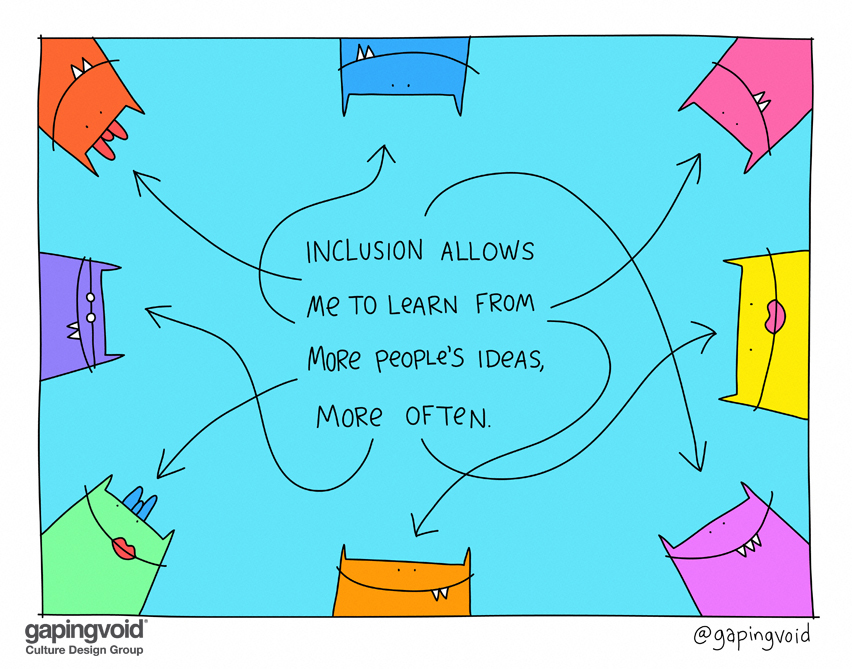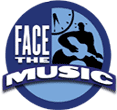One Simple Way to Ensure That Your Team Becomes High Performing

If you are reading this, chances are good that you are currently a member of a team -- either at work, in your community, or as part of a volunteer organization. And if you aren't on a team now, chances are good that, at some time in your life, you were on a team. Yes? I thought so.
In any case, it's more than likely that whatever team you are on, or have been on, has had some challenges along the way.
There were speed bumps, fumbles, breakdowns, lost opportunities, inefficiencies, infighting, power struggles, control issues, boring meetings, personality problems, competing agendas, cliques, triangulation, disappointment, disenchantment, and disillusionment.
You know, real life -- the normal ups and downs of any group of people attempting to join together to accomplish some kind of mutually agreed upon goal.
I have been fascinated by this phenomenon for years and, along the way, have had the good fortune of being a member of quite a few high performing teams, including, in high school, an undefeated, championship soccer team.

Curiously, some people think that just because they're working along side a bunch of other people they're on a team. This is not necessarily true.
What they are thinking of as a "team", may, in fact, merely be a group, club, association, assemblage, aggregation, congregation, gang, crowd, faction, posse, or loose confederation of highly opinionated individuals being paid by the same employer.
A team is different -- requiring a much higher standard of participation and commitment -- not unlike the difference between "dating" and "being married."
Since there are many fine books on this topic (here's my favorite) and I know you only have a few minutes to read this highly informative and action-oriented blog post, I'm going to cut to the chase and focus on just one small component of a high performing team -- one you and your team can do something about immediately.
Agreements.
Yes, agreements. As in operating principles. Norms. Rules of engagement. The collective, verifiable, interpersonal behaviors that you and your teammates can say YES to and abide by that will radically enhance collaboration, communication, and connection.
Most teams operate as if their agreements are in place, but usually they're not. They may be implied, but we all know where implications get us. The same place as good intentions.
So here we go -- a checklist of 25 Team Agreements for your consideration.
I am not suggesting you adopt all of them. What I'm suggesting is that you consider them, find the ones that work for you and, in collaboration with your teammates, create your own set of agreements.
Whatever I've omitted, add. Whatever I've added that's not your cup of tea, omit. Whatever wording is off-base, bothersome, or crude, change. And while some of what's on my list may seem too granular for your taste, know this: Sometimes it's the seemingly "small stuff" that screws everything up -- like the pea under the mattress or adding one too many teaspoons of salt to an already really good pot of soup.
NOTE: I have purposely excluded what I call "Fortune Cookie" statements -- those vague teamwork truisms (sometimes called "values") that can be very important to honor, but are not always translated into action. For example, I could say "be respectful" or "communicate well", but what does that really mean? These kinds of statements can be interpreted in a million different ways. If "respect" is an agreement you want your team to live by -- and a mighty fine one it is -- then frame it in a way that each team member will know what respect looks and sounds like, real time, and will be able to notice when that agreement is either broken or ignored.
READY?

1. Co-create and commit to a compelling vision.
2. Get completely clear about roles and responsibilities. Know who's doing what. And by when.
3. Honor thy commitments.
4. If you realize that you cannot honor a commitment, inform your teammates ASAP and then renegotiate a new commitment.
5. Assume positive intent.
6. Communicate emotionally charged issues on the phone or in person, not in an email.
7. When someone speaks, listen deeply before gearing up to convince them of what you already think.
8. Share your successes with each other
9. Clear the air as quickly as possible whenever there is a breakdown
10. No triangulation! (If someone complains to you about someone else, encourage that person to work it out with the person they are complaining about.)
11. Give and receive feedback.
12. If you need help, ask for it.
13. Show up to meetings on time (and be prepared).
14. Routinely acknowledge and appreciate each other.
15. Be co-responsible. OK, maybe your team has a "leader". Fine. But when the rest of team fails to speak up or act because "they are not the leader", you got problems in River City. Everyone is responsible.
16. Share information freely. (Since, "information is power", the withholding of information is a passive aggressive way in which people wield power over each other).
17. Speak your truth, without attacking or making anyone wrong.
18. Debrief "failures." Together, find the silver lining in every cloud. In other words, learn from mistakes.

19. Create sacred time to have fun together.
20. Begin each day with a 5-minute "morning unity" meeting -- a simple way to make sure everyone is on the same page.
21. Return calls and emails within 24 hours. (If you know you can't return a call or email that quickly, let your teammates know by when you will be able to respond).
22. Share best practices and lessons learned.
23. Celebrate progress (small wins).
24. Be willing to say NO if there is something you are not willing to do (rather than seeming to agree and then, simply, not doing it).
25. Check for understanding before ending a meeting or phone call. Translation? Summarize what you think the agreement or action is -- and invite others to either confirm your understanding or modify it in some way -- so when you leave for points unknown you are all on the same page, not ruled by your assumptions or projections.
BIG THANKS to the following folks for their fine input, feedback, opinions, and insight: Robyn Botellho, Eve Baer, Sharon Jeffers, Matt Altman, Janice Wilson, Kimberly Scott, Sprice Drury, Pierre Boquie, Sharon Gilbert, Janice Silver, Kathy V.J. Miller, Isis Roygbiv, Allen Feld, Liana Turner, Charlie Vacchiano, Alaya Love, Terry Delaney, Yaron Yemini, Tara Liz Driscoll, Mike Regan, Simon Crosse, Michelle Cameron, Neil Frye, James Eartheart, Suzy Chase-Motzkin, Sushila Wood, Lucka Koscak, Katya Huber, Sharon Blatt, Capilcu Milivoi, Alex Shay, Mark Putnam, Susan Margaret Pascoe, David Goldbeck, Alan Roderick-Jones, Tony Cardo, Caridad B. Monroe, Jennifer Boire, Mark Peritz, and Leah Stickles.
Idea Champions
Team Innovation
Innovation Keynotes
Posted by Mitch Ditkoff at 08:24 PM | Comments (0)
August 29, 2019Leave Your Title at the Door and Remove the Door From It's Hinges

When I co-founded my company in 1986, I had two business cards made. One said "President." The other said "Archduke." Whenever I gave clients a choice, they always wanted the Archduke card.
In time, I gave all the Archduke cards away and never re-ordered them -- in a pitiful attempt, I think, to seem more professional.
Fortunately, everything comes full circle. Last night, while enjoying a wonderful concert in my hometown of Woodstock, my next title was suddenly revealed.
Director of Public Elations (and, no, I did not forget the "R".)
In a flash, not only did I get an insight into what my focus will be for the next few years, I also discovered an entirely new field.
Cirque du Soleil is a perfect example.
Gracefully walking the high wire of the Experience Economy, they know their success is intimately connected to their ability to elate the public -- to uplift, inspire, and activate joy.
Southwest Airlines also understands this.
Theirs is a corporate culture founded on delight. Even Starbucks and Barnes & Noble have gotten into the act. Both of them know their product needs to be more than coffee and books, but a feeling -- a sense of well-being, ease, and community.
In a word, elation.
And so, I decided to share my title-changing revelation with my colleagues -- the "Senior Consultant," the "Webmaster," the "Chief Technology Officer," and the "Director of Operations."
I asked them to tell me what new titles they'd like. Here's what they told me:
- Chief Enlightenment Officer
- Princess of Possibility
- Head of Lettuce
- Webmaster of My Domain
- Director of Whatever Needs Directing
- Duke of URL
- Head of Steam
- Lord High Minister of Depth and Feared Wielder of the Reality Check
How about YOU?
What new title do YOU want to see on your next business card? What name more creatively describes what you really do at work?
Idea Champions
Free the Genie
The Innovation Accelerator
Illustration: gapingvoid
Posted by Mitch Ditkoff at 02:30 AM | Comments (12)
August 26, 201921 Reasons Why You Like to Do Your Creative Work in Cafes

Ever since I was old enough to realize there would never be a want ad in a newspaper that described a job I wanted, I've loved working in cafes. I never really thought much about it until a few days ago when a baffled friend of mine asked why I was so into it.
His assumption? That working in a cafe would be a distraction. A distraction? Dude, quite the opposite. I do some of my best work in cafes.
And so, at the risk of trotting out a few half-baked conclusions that my non-cafe-going critics will have a field day trashing, here goes:
21 REASONS WHY YOU LIKE TO WORK IN A CAFE
1. It doesn't feel like work.
2. It's a nice break from the office.
3. You don't have an office.
4. Easy access to caffeine.

5. If you have a home office, you appreciate the fact that -- in a cafe -- there are no interruptions from your wife/husband/kids/roommate who rarely think they are interrupting when they stick their head in the your office and begin the conversation with something like "I'm not interrupting you, am I?"
6. The act of going from your office to a cafe gets the creative juices flowing.
7. Muffins.
8. You get a whole bunch of unexpected inputs that change your perspective for the moment (i.e. snatches of conversation, songs on the radio, odd posters on the wall).
9. There are no distracting tasks to default to (i.e. cleaning your desk, filing, tossing paper clips over the cubicle wall).
10. The people in your office want you to talk in hushed tones and have a need for you to appear busier than you really are.
11. Being waited on by the cafe staff puts you in the mode of "things coming to you" without much effort.
12. You focus on your most creative projects.
13. It feels good being part of a community -- even if the community disbands after your third cappuccino.
14. Old patterns are interrupted. New patterns emerge.
15. You like the authenticity of your responses when the geek at the next table, peeking up from his Mac, asks what you're working on.
16. It's like having a focus group at your beck and call. You can ask anyone for their opinion and they'll give it, no strings attached.
17. If you work at home, it's just a matter of time before your spouse asks you to move a piece of furniture or clean the bathroom.
18. It brings out the artist and poet in you.
19. If you go back to the same cafe again and again, you develop trusting relationships with some of the other regulars -- sharing enthusiasm, feedback, and croissants.
20. The sounds in a cafe become a kind of "white noise" that make it easier to concentrate than when you are working alone at home or in your office. Your "self-talk" gets drowned out by the ambient noise.
21. If anything breaks, someone else has to fix it.
I rest my case
I wrote some of this book in a cafe
Idea Champions
Posted by Mitch Ditkoff at 11:33 PM | Comments (5)
August 14, 201976 Surprising Facts About Corporation Innovation

Here are 76 fascinating facts on corporate innovation curated by Valuer in Denmark. And while it's true that Canadian researchers have determined that goldfish have a longer attention span (9 seconds) than human beings (8 seconds), I have great confidence in your ability to buck this trend and focus for the three minutes it will take to read Valuer's post (unless you are multi-tracking or feeding your goldfish).
Illustration: gapingvoid
56 reasons why most corporate innovation efforts fail
Idea Champions
Posted by Mitch Ditkoff at 10:47 AM | Comments (0)
August 08, 2019How to Foster a Sustainable Culture of Innovation

Looking for inspiration and guidance on how to make your company more conducive to innovation? Here's some food for thought and action -- Idea Champions' ten most popular postings on the subject.
HOW TO FOSTER A CULTURE OF INNOVATION
1. The Garden of Innovation
2. 50 Ways to Foster a Culture of Innovation
3. 56 Reasons Why Most Corporate Innovation Efforts Fail
4. Innovation: It's About Time
5. The Paradox of Innovation
6. The Art of Seeing the Invisible
7. The 100 Lamest Excuses for Not Innovating
8. Innovation Is An Inside Job
9. 41 Ways Business Leaders Can Foster a Culture of Innovation
10. The Four Currents of a Culture of Innovation
MitchDitkoff.com
Idea Champions
Who We Are
Our clients
What our clients say
Posted by Mitch Ditkoff at 05:17 PM | Comments (0)














